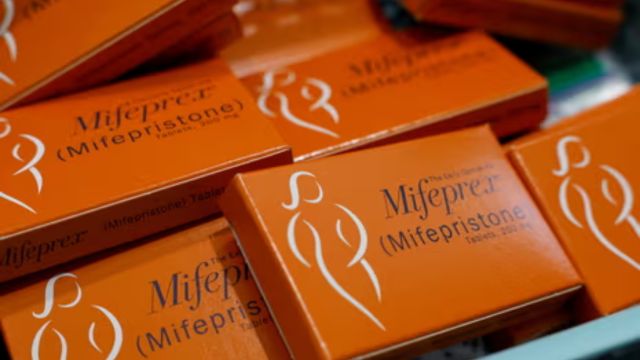Physicians who oppose mifepristone are under investigation due to their scant knowledge of the abortion medication
The Supreme Court is currently deliberating a significant case that could potentially restrict access to mifepristone, an abortion pill, affecting millions of Americans. Central to this high-stakes litigation are 11 anti-abortion doctors and advocates who assert that the availability of mifepristone has negatively impacted their professional duties due to patients experiencing complications from the drug.
Notably, among these individuals are a Republican state senator from Indiana, a proponent of a contentious “abortion pill reversal” technique criticized by medical authorities as unproven, and another whose medical license has lapsed.
These doctors, who have historically opposed abortion, have not prescribed mifepristone themselves and have not cited specific instances where they had to address complications arising directly from the use of the drug.
- Auto Insurance Shopping Rises in Response to Soaring Insurance Rates: Report
- Avoid These 7 Missteps When Refinancing to a Lower Mortgage Rate
- Rising Home Prices Amid Slight Mortgage Rate Dip: Analysis
- Fresno County’s Groundbreaking Initiative: $500 Monthly Payments in New Guaranteed Income Program, Here is Who is Eligible
- Unlocking Financial Freedom: 5 Reasons to Opt for Personal Loans in Credit Card Debt Repayment
Their involvement underscores the broader debate on whether the Food and Drug Administration (FDA) exceeded its boundaries by easing the procurement of mifepristone, including permitting mail dispensation and expanding prescribing rights.
The crux of the Supreme Court’s preliminary examination lies in determining the plaintiffs’ “standing,” or right to sue, hinged on whether they have suffered direct harm from the drug’s availability.
- Will Everyone Get a $12,000 Stimulus Check in 2024? Find Out Eligibility
- $6400 Stimulus Checks in 2024: What You Need to Know About Eligibility and Payment Dates
- IRS 4th Stimulus Check 2024: Comprehensive Guide to Eligibility and Payment Dates
- 3 Smart Moves to Make Once Your Savings Reach $50,000, Here Are Crucial Actions to Take
- 3 Effective Ways to Pay Off Student Loans on a $50K Salary or Less, Know Here!
Critics, including Supreme Court litigator Adam Unikowsky, challenge the legitimacy of their grievances, suggesting that the connection between the drug’s usage by others and the alleged harm to these doctors is tenuous.
The doctors’ declarations highlight instances where they supposedly had to manage complications such as excessive bleeding, which they claim has significantly affected their practice and principles. Yet, these claims have been met with skepticism due to their lack of direct involvement with mifepristone prescriptions and the ambiguous nature of their assertions.
This legal battle arrives in the aftermath of the monumental overturning of Roe v. Wade in 2022, intensifying the national discourse on abortion rights. The case’s underpinnings also delve into whether the FDA’s relaxed guidelines for mifepristone access, which aimed at enhancing availability, particularly for rural populations, inadvertently impose ethical or professional dilemmas on anti-abortion healthcare providers.
The challenge to the FDA’s regulation on mifepristone marks a pivotal moment, as medication abortions represent a substantial portion of all abortions in the US. A decision favoring the plaintiffs could lead to increased demand for in-clinic abortions, further straining facilities, especially in regions where abortion faces stringent restrictions.
The legal trajectories and backgrounds of the involved medical professionals are under intense scrutiny, with their credibility and motivations questioned by defenders of reproductive rights.
The American Medical Association and other leading medical bodies have consistently affirmed mifepristone’s safety, challenging the plaintiffs’ anecdotal claims and highlighting the potential implications of curtailing access based on disputed premises.
As the Supreme Court navigates this contentious issue, the qualifications and objectivity of the anti-abortion advocates involved remain focal points. This scrutiny not only influences the case’s outcome but also reflects broader societal debates over medical ethics, reproductive rights, and the role of personal belief systems in professional healthcare practice.











